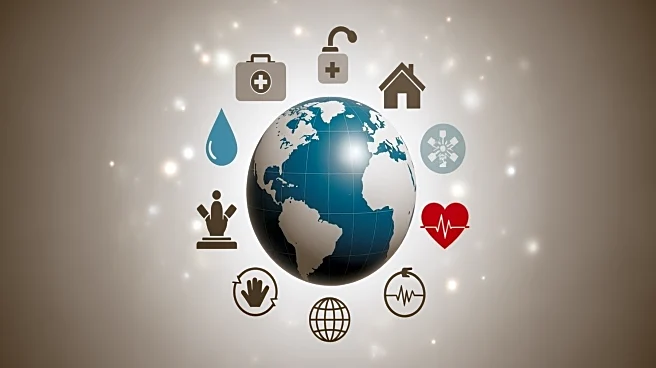What's Happening?
Humanitarian aid is defined as logistic and material assistance provided to people in need, typically following disasters. This aid is guided by four principles: humanity, neutrality, impartiality, and independence.
These principles ensure that aid efforts focus on alleviating human suffering without favoring any side in conflicts or being influenced by political objectives. Humanitarian aid is distinct from development aid, which addresses underlying socioeconomic factors. Aid is delivered through local and international agencies, covering needs such as food, shelter, education, protection, and healthcare.
Why It's Important?
The principles of humanitarian aid are crucial in maintaining the integrity and effectiveness of relief efforts. By adhering to these principles, aid organizations can provide unbiased support to vulnerable populations, ensuring that assistance reaches those most in need. This approach helps prevent the politicization of aid and promotes trust among affected communities. Humanitarian aid plays a vital role in immediate crisis response, while development aid addresses long-term challenges, together contributing to global stability and resilience.
What's Next?
Humanitarian organizations will continue to operate under these guiding principles, adapting their strategies to address emerging crises. As global challenges evolve, the need for coordinated international response efforts will increase. Organizations may focus on strengthening partnerships and enhancing their capacity to deliver aid efficiently. The distinction between humanitarian and development aid will remain important, ensuring that both immediate and long-term needs are addressed effectively.
Beyond the Headlines
The ethical implications of humanitarian aid are significant, as organizations must navigate complex situations while maintaining neutrality and impartiality. The independence of aid efforts is essential in preventing external influences from compromising the mission of alleviating suffering. Long-term shifts in global humanitarian policies may arise from ongoing efforts to refine and uphold these principles, influencing international standards and practices in disaster response.











